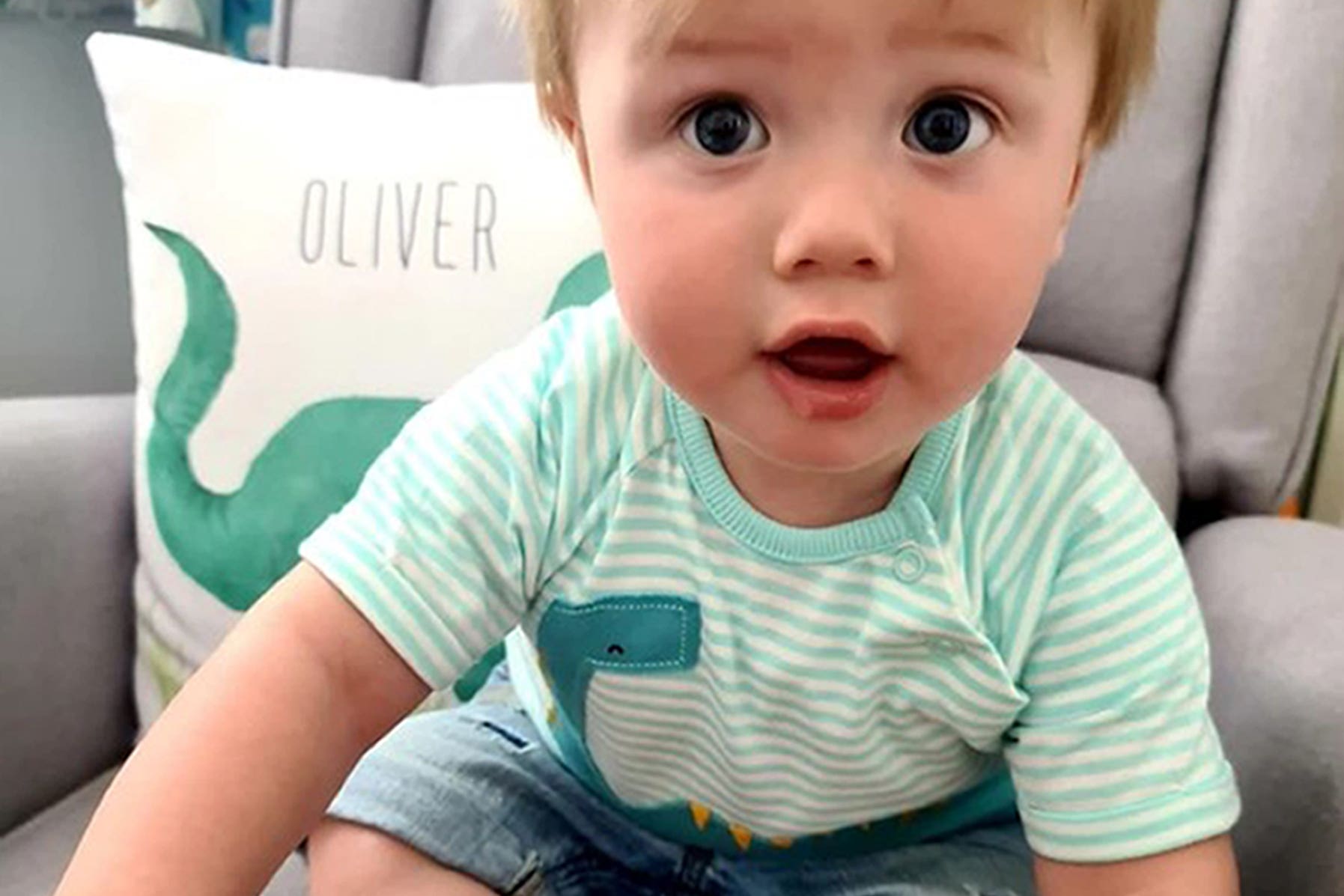Baby death shows having only one nursery first aider ‘is risk to life’ – coroner
Oliver Steeper died in hospital in September 2021 six days after he choked on food at the Jelly Beans Day Nursery in Ashford, Kent.

Regulations requiring one first-aider per nursery “pose a risk to future life”, a coroner has warned after a baby died following a choking incident.
Oliver Steeper died in hospital in September 2021, six days after he choked on food at the Jelly Beans Day Nursery in Ashford, Kent.
The nine-month-old baby had two partially-erupted teeth and his parents said he was “nowhere near being able to chew” properly.
A carer at the Jelly Beans Day Nursery had fed him “finely chopped” penne pasta and Bolognese on the tip of a spoon when he inhaled and gagged on it.
At the close of Oliver’s inquest, coroner Katrina Hepburn said she was concerned that even staff with a valid first aid certificate were not able to administer the correct CPR.
On Thursday, she told Kent and Medway Coroner’s Court at Oakwood House, Maidstone: “I have heard evidence that in the regulations covering early years childcare providers, of all the staff on site, that only one member of staff has to have a valid paediatric certificate.”
Early years outlets have 50 to 80 people on site and “one staff member would be responsible for providing first aid to all the children”, she said.
“If unavailable, or indisposed to attend an emergency situation, or simply not in the position to administer first aid” another staff member may have to deal with the situation.
“It seems to me that this must pose a risk to future life.”
She said paediatric certificates were valid for three years, and that “it was apparent from the evidence in this case that, when confronted with an urgent situation with a choking child, the staff – even those with a valid certificate in place – were not able to put in place the recommended (CPR).”
She said nobody gave Oliver a mouth-sweep or started chest compressions and staff were uncertain as to how hard back slaps should be.
Her report to prevent future deaths will be sent to the Department for Education in the next 10 days and they will have 56 days to respond or apply for an extension, she said.
Nazia Begum was feeding Oliver and her first aid certificate had expired more than a year before the incident occurred, the inquest heard.
She told the jury that, when he started to choke, she gave him a “light tap” on his back but did not offer him any water.
Her colleagues took over as she ran to the office and alerted the nursery manager, Debbie Alcock, who took Oliver into the garden before paramedics and police arrived.
Ms Alcock also gave evidence at the inquest via video link.
She told jurors only “one suitably qualified first-aider” was needed across the whole premises, and she had “prioritised” new staff with no first aid certificates to undertake training first before focusing on those with lapsed certificates.
She said she carried Oliver upside down into the garden to try and dislodge any food that was stuck, before she administered mouth-to-mouth and cardiac massage with the heel of her hand.
Oliver’s mother, Zoe Steeper, said in a statement outside Oakwood House: “In court, we were shocked to hear various witnesses give evidence about the scene of total chaos that unfolded that day in front of many other little children.
“Oli was only nine months old – he was just a little baby – why did this happen? We believe that Oli’s death was entirely preventable.
“We entrusted Jelly Beans nursery with our most prized possession – our beautiful baby boy. We were assured that they would look after him properly. No parent should ever leave their child at nursery for them not to come home.
“Oli’s case has shone a light on what we feel are loopholes in the way nurseries are allowed to care for young children and babies.”
Jill Paterson, the family’s solicitor from law firm Leigh Day, said Oliver’s parents are “fully committed to ensuring that important lessons are learned from this terrible incident and that nurseries and other early childhood settings become safer places in future.
“Urgent action must be taken by all those involved in the early years sector, including regulators, legislators and childcare providers, to ensure that this appalling tragedy that cost the life of a baby boy never happens again.”
The jury said that Oliver died by hypoxic-ischaemic brain injury caused by going into cardiac-respiratory arrest after choking on food.
They ruled that he died by misadventure.
Bookmark popover
Removed from bookmarks